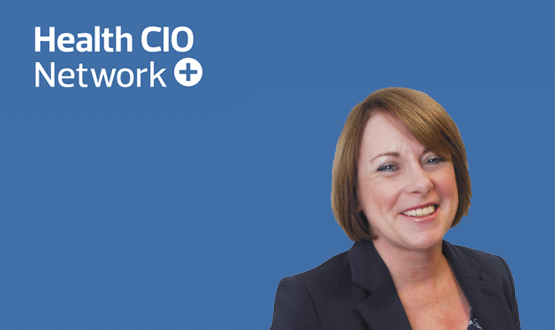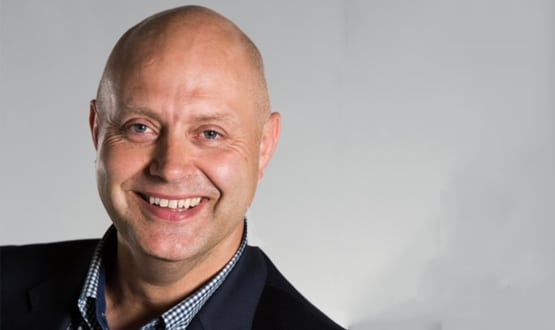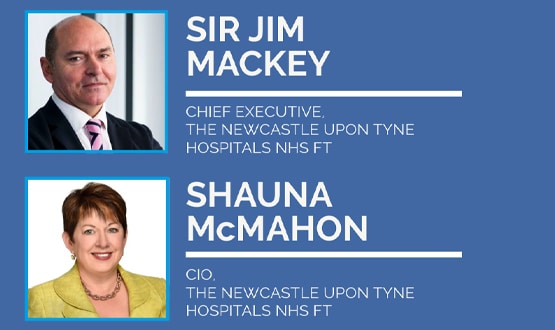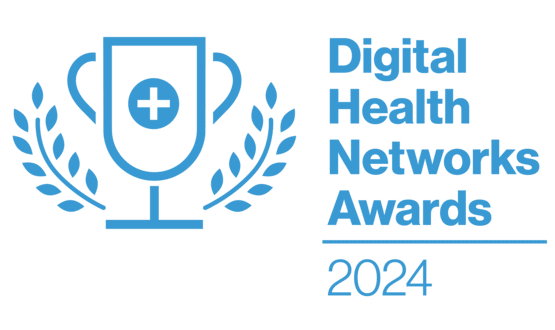The CIO interview: Christine Walters, St Helens and Knowsley Teaching Hospitals NHS Trust
- 13 February 2018

This week, Digital Health News sits down with Christine Walters, CIO at St Helens and Knowsley Teaching Hospitals NHS Trust. Walters talks us through some of the milestones the trust has achieved in the past 12 months, including the technology turning its hospitals into paper-free zones. She also reveals her biggest source of inspiration in the NHS and the barriers faced by aspiring CIOs.
Why did you become an NHS CIO?
I joined the NHS from the private sector. I had heard that there would be massive investment in IT due to NPfIT [the National Programme for IT] and I figured that if there is huge investment being made, there would be great personal and professional opportunities, particularly to actually make a difference in the NHS. I also hoped that I could put the leadership skills I gained in the private sector to good use in the NHS.
So, somewhat naively, I joined the NHS, starting my first role as deputy director of IM&T at Salford Royal. I’d like to think I am less naive now!
Within your organisation, what is the most significant digital achievement of the past 12 months?
We have made some great strides towards improving our digital maturity. We have invested in technology that has seen paper being used less and less across the two hospitals in the trust and using technology as a key enabler to safer, more efficient patient care – like our Opera Theatre System, eMEWS and ePMA.
Something I am very proud of was my team’s response to the WannaCry cyberattack last May – we made some quick and critical decisions that meant disruption was minimal and our staff could continue providing care to patients across the weekend.
What will be the most significant development in healthcare over the next 12 months?
Healthcare is definitely changing. There will be new models of care with locality-based care for citizens, not just patients in a hospital or attending a GP appointment.
New networks are working together to make location-based care a reality. I am working with St Helens Cares in our local area, working with healthcare providers, social care and the voluntary sector to bring about truly integrated, out-of-hospital care with a shared care record. Having the right information for the right person at the right time… it’s happening!
What’s the largest barrier to being a more effective CIO?
My answer won’t surprise you, but a lack of funding is the largest barrier. When you have the aspiration, engagement and capability, it’s frustrating to not be able to deliver everything you want to because of the ongoing challenge of lack of money.
Some technology funding is available, but priorities and allocation criteria needs to change to ensure equitable sharing of available resources across the NHS.
What’s the largest barrier the NHS faces overall in achieving digital transformation?
Availability of funding again, plus suppliers’ lack of capacity or capability to deliver.
If you had one piece of advice for other NHS CIOs, CNIOs and CCIOs, what would it be?
Keep smiling, keep trying, keep working, never give up and keep up the determination to try to make a difference. I know that’s more than one piece of advice, but they are all equally relevant and I couldn’t choose just one.
Who in the NHS do you admire the most and why?
In all honesty, the thousands of committed NHS staff that turn up every day to give their all and share the same goal of improving patient care. Whether they’re clinical or non-clinical they are all unsung heroes.
If you were given £30 million to spend on digital transformation within your trust, where would that money go?
I would invest in an EPR and the underlying infrastructure to provide true digital care, not only in the hospitals but across the locality. With our ambition of a shared care record through the St Helens Cares initiative, this would be a huge step forward in enabling the vision and ultimately providing our citizens with the care they deserve.
What is the most over-hyped digital innovation in health?
Virtual reality, which has been touted as a technology that can support healthcare education, enable remote patient appointments, be used as a diagnostic tool and be used in robotic surgery. I think, at the right time, VR could come into its own, but I think we have taken a “cool” technology and tried to make it fit, instead of researching and trialling the technology and providing the evidence that it will work and applying it in the right way.
What is the most under-rated digital innovation in health?
I actually think that PACS [picture archiving and communication system] is massively under-rated and perhaps not used to its full potential.
As well as removing hard copy medical images and providing access to images from different locations for clinicians, it has improved radiology workflow tremendously.
What’s the worst job you’ve ever had and why?
I worked as a chambermaid in a hotel in London during a summer holiday. It was a really high-class, expensive hotel, with some of the richest people staying there, but you would not believe some of the things I saw. They may have money, but that definitely doesn’t mean they have class!
If you could invite three people, alive or dead, to dinner who would they be?
Firstly, definitely my Jewish great-great grandfather Abraham Hyman, who was born in Poland in 1834, fled as a young man, was shipwrecked on his way to America and ended up in Ireland homeless and penniless, before migrating to England, where he met and married my great-great grandmother in Manchester.
A man who couldn’t sign his name on his marriage certificate has created a dynasty of grandchildren that includes a Roman Catholic priest, a musician, a teacher and a petty criminal who spent much of their life in jail, and great-great grandchildren including an economist, an accountant and me, and great-great-great grandchildren that include a veterinary surgeon, archaeologist and a barrister.
I would love to know how he survived such difficult times and for him to see the legacy he created after such a difficult start in life.
Second, Mozart.
Lastly, David Attenborough. What a fascinating man. He has travelled to all corners of the world, seen and done some extraordinary things on this planet, and at 91 years old still has a great presence, personality, passion and the ability to transport us all into his wonderful – and sometimes not so wonderful – world.
What’s your favourite piece of technology at home and why?
Definitely my iPad. I love it – I can do my shopping, check the weather, book holidays, send messages, keep in touch with friends and family, do work. It just opens up the whole world from your living room.
If you could have any other job, what would it be?
I’ve always loved the idea of being a professional musician, with a secret hankering to play the saxophone – I have absolutely no idea why. Maybe it comes from great-great grandad Abraham!
In a film of your life, who would play you?
Angelia Jolie. In a certain light I think we look alike… with the light off, that is!





2 Comments
ok, IT’s not about funding, IT”s about people 🙂
Loved this article, especially as a sax player.
Got to say your quick thinking to protect the hospital meant that all GP clinical systems were cut off without warning, but in Knowsley GP we’re used to being an afterthought. Having requested voice recording 4 years ago and still not implemented by the HIS I’m not holding my breath for a dinner invite!
Comments are closed.